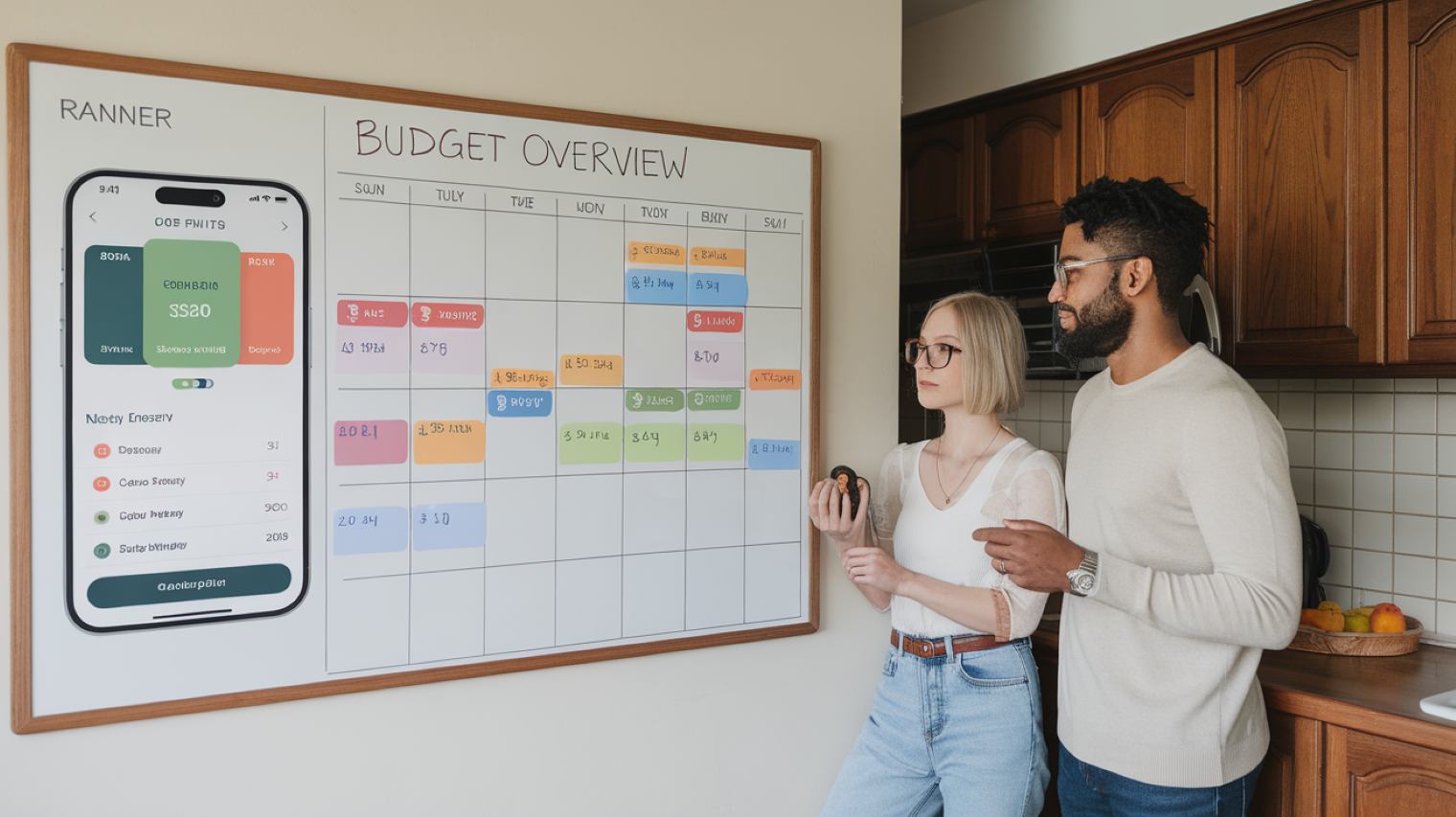How to Live in One-Income Household: Smart Ways to Thrive

Learning how to live in one-income household isn’t just about cutting expenses—it’s about building a life centered around time, freedom, and financial control. In today’s world, where side hustles, crypto trading, and stock investing are common, many families are finding that more income doesn’t always mean more happiness.
Whether you are choosing this path or adjusting due to life changes, knowing how to live in one-income household can help you thrive without sacrificing your goals. This guide will walk you through building a strong emergency fund, setting a realistic one-income budget, and creating financial habits that support lasting success.
If you’re involved in crypto or the stock market, or simply looking for a simpler, more meaningful life, these steps will help you move forward with confidence, clarity, and peace of mind.
- Build a 3–6 month emergency fund before switching to one income.
- Base budgets on worst-case monthly income, not best-case.
- Cut unnecessary spending, but keep meaningful joys.
- Pay off high-interest debt and avoid trading with leverage.
- Explore passive income to reduce pressure on the main earner.
- Automate bills, savings, and track finances with a simple system.
- One-income life prioritizes time, peace, and purpose over hustle.
What It Means to Live in a Single-Income Household Today

Living in a single-income household means that only one person is earning an income to support the family. This arrangement is becoming increasingly popular, especially among families in high-pressure industries like trading and crypto, where income can be volatile. Learning how to live in one-income household situations is becoming an essential skill for families wanting more stability and balance.
More families are considering this shift for a variety of reasons. A major one is the desire for more time together. When one partner stays home, it frees the other to focus on work while the home is managed smoothly. It can create a better balance between work and personal life. For many, this decision is made after careful planning, while for others, it’s triggered by unexpected events like a job loss or a decision to pursue education or passion projects.
Living on one income has some real advantages. It can mean less stress from juggling multiple jobs, more quality time as a family, and a simpler, more intentional lifestyle. With fewer work-related demands, families often find they can prioritize hobbies, health, and personal growth more easily. Of course, it’s not without challenges. A single income naturally means a smaller budget, and that can bring financial pressure. But by embracing smart money strategies, families can still thrive. Figuring out how to live in one-income household situations successfully means being realistic about expenses, planning carefully, and focusing on what matters most.
Can You Really Survive on One Income?

One of the most common concerns about living on a single income is the fear that it’s impossible to survive financially. The truth is, you can survive on one income, but it requires careful planning, budgeting, and adjusting your lifestyle.
Common Fears vs. Facts
The idea of living on one income can create anxiety, especially when it feels like there is not enough money to go around. However, many families who live on one income actually find that they spend less, save more, and are happier overall. The key is setting realistic expectations and adjusting your financial habits accordingly.
Realistic Expectations for a One-Income Lifestyle
It’s important to acknowledge that living on one income requires sacrifices, especially in the beginning. You might need to cut back on discretionary spending, change your entertainment habits, or find more affordable ways to manage family life. But the good news is that it’s entirely possible to live comfortably if you plan and stick to a budget.
Example: Crypto Investor Families Living with Variable Income
For families in industries like crypto or trading, income can fluctuate greatly. These families often have to live with the uncertainty of their income stream. However, by planning for these fluctuations and setting up a stable emergency fund, many of them can still thrive on a single income, despite the variable nature of their earnings.
Build a Safety Net First: Emergency Fund Must-Haves

Before switching to a one-income household, it’s important to build a safety net. That means saving up money that you don’t touch unless there’s a true emergency, like a medical bill, car repair, or job loss.
Most experts suggest having three to six months of living expenses saved. If your main income is tied to the market, like stock trading or crypto, aim closer to six months or more. That way, if you have a bad trading week or a major dip, your family stays protected.
Where you put this money matters. Use a high-yield savings account for easy access. If you’re in crypto, you can store emergency funds in stablecoins—just make sure they’re in a secure wallet and easy to convert. You want quick access, not long-term growth.
This is your first defense when learning how to live in a one-income household. It gives you peace of mind, lowers stress, and helps you handle surprises without going into debt.
Set a One-Income Budget That Works in the Real World
Once your emergency fund is in place, the next step is building a budget. A one-income budget needs to be simple, clear, and realistic.
Start by tracking everything you spend. Write it down, use a spreadsheet, or try a free app. Look for areas where you can cut back. If one partner used to work, you’ll likely save money on things like commuting, office clothes, child care, and lunches out. That extra money should now go toward essentials like rent, food, savings, and debt.
This isn’t just about saving. It’s about making your spending match your values. If your family values time over money, or if your goal is to build wealth through trading or investing, then the budget should support that. Stick to it. Review it monthly. Adjust as needed. And always leave room for fun and growth.
Learning how to live in a one-income household means taking full control of every dollar. It’s not about living poor—it’s about living smart.
Account for Market Volatility
If your income comes from crypto, stocks, or freelancing, you already know that money doesn’t come in the same way every month. One month, you’re up. Next, you might be flat or down.
That’s why your budget must plan for the lowest months, not the best ones. If you made $6,000 in February but only $3,500 in March, you need to budget based on the lower number. Save the difference when you earn more. This helps create consistency in your life, even when your income isn’t consistent.
Automating your savings helps, too. Send a portion of each big gain directly into savings or a separate account. That way, you don’t get tempted to spend it all when the market feels hot.
This kind of discipline is key to surviving on one income, especially in high-risk fields like trading.
Slash Unnecessary Spending
Cutting costs doesn’t mean cutting happiness. It means removing the things you don’t truly value so you can keep the things you do.
Look closely at your spending. Are you paying for things you don’t use? Could you cook more meals at home? Could you get rid of a second car if one person stays home? These kinds of changes add up fast.
But don’t cut everything. Keep the simple joys that make life fun. That could be weekend movie nights at home, a small budget for hobbies, or time together without screens. When you cut waste and keep meaning, life feels richer, even with less money.
Pay Off High-Interest Debt While You Still Have Time

Debt is like carrying a backpack full of bricks into your one-income journey. If you’re still in a two-income setup, now’s the time to pay it down.
Focus on the loans with the highest interest rates first. That’s usually credit cards, followed by personal or car loans. Every dollar you pay toward debt now means more freedom later.
If you’re trading or investing, you might feel tempted to use that money for a “sure thing.” But be careful. Paying off debt gives you a guaranteed return and peace of mind. That’s worth more than chasing a risky gain.
Clearing debt is one of the most powerful ways to survive on one income. It frees up your cash flow, reduces anxiety, and helps you sleep better at night.
Watch for Leverage in Trading: It’s Hidden Debt

This tip is for stock and crypto traders: Margin is not free money. It’s debt in disguise. When you borrow to trade, you’re taking on risk. In a one-income household, that risk becomes more dangerous. If your trade fails, you still owe what you borrowed, and that could blow up your whole budget.
If you want to keep trading while living on one income, consider trading only with your own money. Stay conservative. Focus on long-term moves instead of fast flips. The market will always be there. But your peace of mind matters more.
Rethink Taxes: Update Your Withholding Strategy

When your income changes, your tax plan should change too. Lower income might mean lower taxes. You might also be eligible for deductions you couldn’t take before.
If you’re married and filing jointly, look into spousal IRA contributions. That lets the non-working partner keep saving for retirement. If one of you is self-employed—like a trader, freelancer, or crypto consultant—you may have business deductions that lower your total bill.
Talk to a tax advisor who understands your income type. It’s better to adjust your strategy early than get hit with a surprise bill later.
Shift Focus from Spending to Time-Rich Living

When you earn less money, you gain something that’s often more valuable: time. Now you have space to cook meals, fix things around the house, or learn a new skill. You can take slow walks, read books, or spend real time with your kids. These moments can’t be bought, and they often bring more joy than money ever could.
If you’re into trading, this is also a chance to learn more. Read financial books. Test strategies. Study market patterns. Use your time to grow, not just to save.
Stay Professionally Engaged
Leaving a job doesn’t mean losing your skills. If you want to stay connected to your field, there are lots of small ways to do it.
Take on freelance work. Consult part-time. Write about what you know. Many traders and finance experts start blogs, newsletters, or YouTube channels while living on one income. These projects keep you sharp, and they might even earn a few dollars.
Staying engaged makes it easier to jump back into full-time work later. And it reminds you that you still have something valuable to offer, no matter what your income looks like today.
How to Make Passive Income While Living on One Income
Passive income isn’t magic, but it can be a real game-changer when you’re figuring out how to survive on one income. If you can earn money while you sleep, it gives your one-income lifestyle a huge boost without adding another job to your plate.
Some ways people do this include buying dividend stocks, staking crypto assets, or investing in real estate. Others sell digital products, run websites, or join affiliate programs to create a steady trickle of extra earnings. It doesn’t have to be huge to make a difference. Even a few hundred dollars a month can take the pressure off your main income and make your financial life feel a lot more manageable.
The important thing is finding something that works for you and your schedule. Not everyone needs or wants a side hustle, but having passive income options makes the one-income journey feel a lot more secure and sustainable over time.
Create a Simple System to Manage Family Finances

When money gets tight, clarity helps. You don’t need a fancy system—just one that works, especially if you’re looking for realistic ways to live off one income. Start by deciding who will track the money, or do it together if that feels easier.
Choose whether you want to combine finances completely, keep separate accounts, or find a mix that fits your comfort level. Set up automatic transfers for bills, savings, and essentials, so you’re not constantly stressing over due dates.
It doesn’t have to be complicated—something as simple as a basic spreadsheet or a free budgeting app can do the trick.
The simpler your system, the easier it is to stick with, especially when every dollar counts. When everyone knows where the money is going and what’s coming in, there’s less tension, fewer arguments, and fewer surprises down the road.
Final Thoughts
Learning how to live in a one-income household is more than just a budgeting exercise—it’s a real mindset shift. It’s about choosing to value time, connection, and purpose over constant hustle. Yes, it takes careful planning, smart saving, and a willingness to adjust your lifestyle. But the rewards are powerful: less financial stress, more freedom to grow, and a deeper focus on what truly matters.
Whether your income comes from crypto, stocks, freelancing, or a traditional job, the principles stay the same: plan wisely, spend intentionally, and protect your future. Living on one income isn’t about giving up opportunities; it’s about creating new ones. With a strong safety net, a realistic budget, and a focus on your bigger goals, you can thrive. Start today. Your best, most balanced life is closer than you think.
